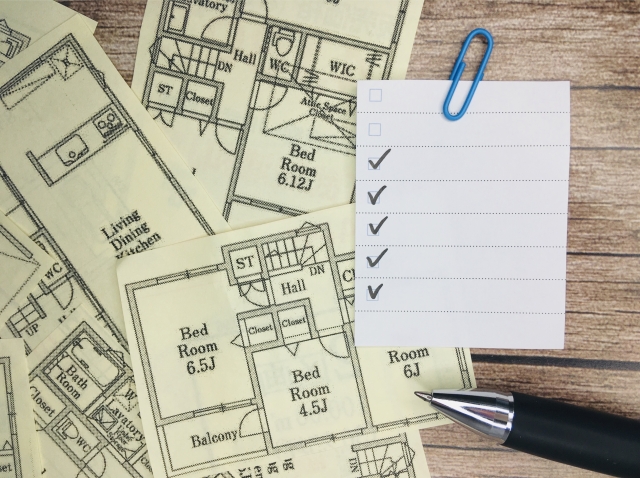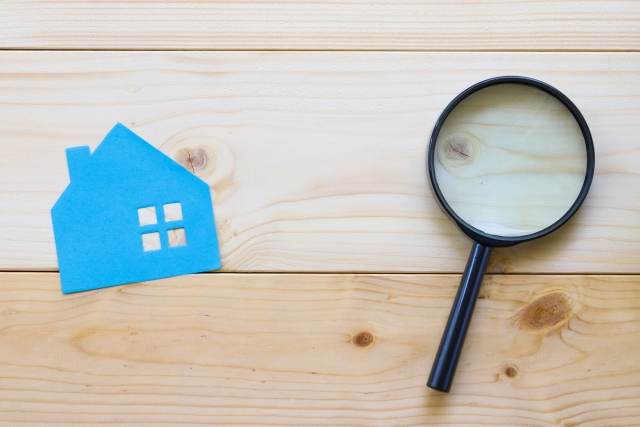For First-Time House-Hunters in Japan: A Step-by-Step Guide
2020-11-04
Housing in Japan

If you’re new to Japan and you’re going house-hunting for the first time, you’re probably worried and confused about many things. But don’t fret. This article will explain everything to you step by step, from searching for a property, submitting an application, to moving out of a place. We’ll also give you an idea of the things you need to prepare and the approximate costs involved.
① Setting your conditions and preferences
② Searching for a property
③ Viewing a property
④ Submitting an application
⑤ Preparation and moving in
⑥ After moving in
⑦ Terminating your contract/Moving out
⑧ Summary

① Setting your conditions and preferences
The first thing you need to do is decide what kind of place you want to live in. The following are some of the things you should consider in advance to make your house-hunting go smoothly.
・Rent
・Preferred area (including nearest train station)
・Date of moving in
・Property condition and facilities
・Priority of your preferences
It doesn’t have to be very specific, just a general idea will do for now. You can decide on the details when you visit the real estate agent, who will help you find the ideal place based on your preferences.
※ As a rule of thumb, the rent should be no more than one third of your monthly salary. This rule is also taken into consideration when your application goes through a tenant screening process.
※ It normally takes around two weeks for your application to be processed, so you should make an application at least two weeks prior to your desired move-in date. Note that it is virtually impossible for you to be able to move-in within a day of your application, even if you are willing to pay a higher price.
② Searching for a property
Generally, there are two ways you can search for a property. You can consult with a real estate agent, or you can search on the Internet. But if you’re new to the process, it’s advisable to consult with a real estate agent for the following reasons:
・You can get professional advice on the good and bad points of each property
・The agent can share station and local information about an area you’re not familiar with
・The agent can introduce properties that are not searchable on the Internet
Properties listed on the Internet can be searched and seen by anyone in the world. If you think you’ve found a great property, chances are that someone else is thinking the same thing. That same property might also have been introduced by a real estate agent to a client, who could be viewing the room right now.
In other words, the competition for good rental properties is often high, and there’s a chance that a property you like is no longer available even if it’s still listed on the Internet. Rather than searching on the Internet in your spare time, why not set a day aside to visit a real estate agency and let a professional do the work for you?
You can visit any real estate agency in the area you’re looking to move in to. But if you want to feel more assured, you should visit a company with an agent from your own country or someone who speaks your language.

③ Viewing a property
While property viewing is a totally free service, it’s not really advisable to view as many properties as you can. Viewing properties takes time, and while you’re taking the time to view and decide, someone else might take an apartment you like before you.
As a former real estate agency salesperson, my recommendation is to narrow down the rooms you want to view to three locations or fewer. Note that this number may vary depending on your preferred area and the time of year when you are moving, so it’s best to consult with a local real estate agent.
Nowadays, if you search for the name of a property on the Internet, you can usually find photos of the rooms available for rent. It wouldn’t be of much use to actually go and view that room just to see the same things you could have seen in the photos.
The following are some of the things you should check when you go on a property viewing:
・How much sunlight gets into the room
・The view from the windows
・Communal spaces (garbage collection site, bicycle parking, etc.)
・Supermarkets, convenience stores, etc. in the neighborhood
・The route to the nearest train station
If you already own some furniture and electrical appliances (such as refrigerators and washing machines) and you plan to use them in your new room, you should measure their dimensions and check that they will fit in the available spaces in the new room.
④ Submitting an application
After you’ve decided on the place you want to rent, the next step is to submit an application for it. You normally need to prepare the following documents to submit an application.
・Passport
・Residence card
・Proof of income (tax withholding slip or payslip for the past 3 months)
・Student ID or certificate of enrollment (if you are a student)
・Job offer letter (if you are about to start new employment)
The application process likely includes a tenant screening process to verify your employment status, solvency, and other background information. This screening can take anywhere from one day to a week. If you pass the screening, you can proceed to the contract signing and payment of fees.
The initial expenses usually amount to around five times the monthly rent (especially if you have to pay key money and a security deposit), so make sure you have enough funds.
For the contract signing, you will need to prepare the following documents:
・Residence record (juminhyo)
・Personal seal for your bank
The real estate agent will explain to you the details of the contract, but if there is any item you are not sure of, you should ask and make sure that you understand it fully.
⑤ Preparation and moving in
From a week to a day before your moving-in date, you should apply for electricity, gas, and water services in your new room. You can apply for these by phone or through the Internet. Commencement of electricity and water services can be completed remotely, but for gas, you normally need to be present at your home when a worker comes to open your gas line, so make sure to set aside some time for this in your schedule.
After receiving the house keys from the real estate agent and entering your new apartment, the first thing you need to do is to take photos of any damage or dirty spots you find. This is to avoid the trouble of having to pay for repairs when you move out. When you move out of the room, you will need to return the keys to the real estate agency, so make sure not to lose them.

⑥ After moving in
If there is an onsite caretaker or if the landlord lives nearby, it’s a good idea to visit them and introduce yourself. You can do this for your immediate neighbors as well. Make sure to observe all the rules, such as those for communal spaces and garbage disposal, to enjoy a trouble-free tenant life.
If there are any issues with your room or your neighbors, you should contact the company managing the property. Their contact information should be written in your rental contract.
⑦ Terminating your contract/Moving out
If you want to move out of the property, you need to notify the landlord or real estate agency at least 1 to 2 months in advance (the exact period is specified in your rental contract).
Around a week prior to your moving-out date, make sure to contact the utility companies to request the cancellation of electricity, water, and gas services.
There is a final inspection by the landlord or real estate agency before you vacate the premises. Make sure to be present during this inspection to avoid having to pay more than you are liable for.
⑧ Summary
We just gave you a step-by-step guide on the house-hunting process in Japan. As you can see, there are many things you need to consider and prepare. It might seem like a lot of trouble at first, but it’s an essential part of life in Japan. We hope this serves as a useful reference. Enjoy your life in Japan!

